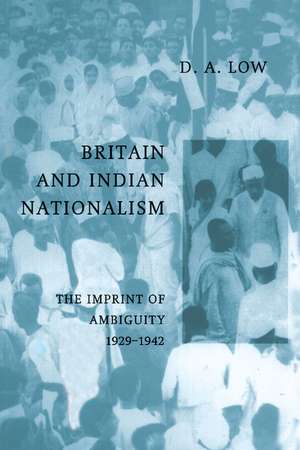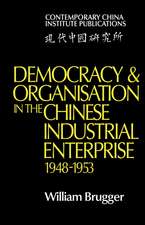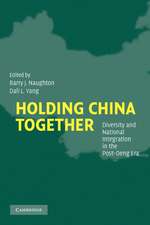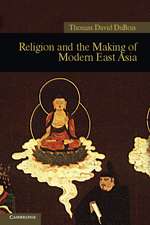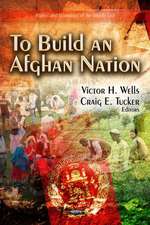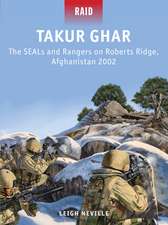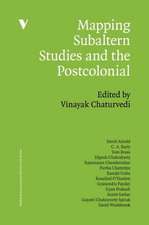Britain and Indian Nationalism: The Imprint of Amibiguity 1929–1942
Autor D. A. Lowen Limba Engleză Paperback – 17 iul 2002
| Toate formatele și edițiile | Preț | Express |
|---|---|---|
| Paperback (1) | 367.56 lei 6-8 săpt. | |
| Cambridge University Press – 17 iul 2002 | 367.56 lei 6-8 săpt. | |
| Hardback (1) | 534.23 lei 6-8 săpt. | |
| Cambridge University Press – 17 sep 1997 | 534.23 lei 6-8 săpt. |
Preț: 367.56 lei
Nou
Puncte Express: 551
Preț estimativ în valută:
70.33€ • 73.43$ • 58.21£
70.33€ • 73.43$ • 58.21£
Carte tipărită la comandă
Livrare economică 04-18 aprilie
Preluare comenzi: 021 569.72.76
Specificații
ISBN-13: 9780521892612
ISBN-10: 0521892619
Pagini: 376
Ilustrații: 5 maps
Dimensiuni: 152 x 229 x 24 mm
Greutate: 0.56 kg
Editura: Cambridge University Press
Colecția Cambridge University Press
Locul publicării:Cambridge, United Kingdom
ISBN-10: 0521892619
Pagini: 376
Ilustrații: 5 maps
Dimensiuni: 152 x 229 x 24 mm
Greutate: 0.56 kg
Editura: Cambridge University Press
Colecția Cambridge University Press
Locul publicării:Cambridge, United Kingdom
Cuprins
Preface; 1. Introduction: contemporary encounters; 2. Vortex debate: the Purna Swaraj decision 1929; 3. Holds barred: anatomy of a Satyagraha, Lucknow May 1930; 4. Peace with conflict: the Gandhi-Emerson talks, March-August 1931; 5. Thrust and parry: the Mahatma at bay 1932–3; 6. Which way ahead? Nehru and congress strategy 1936–7; 7. The spider's web: congress and provincial office 1937–9; 8. Working with the grain: Sir Tej Bahadur Sapru and the antecedents to the Cripps Declaration 1942; Bibliographical notes; Index.
Recenzii
' … this book constitutes a very considerable achievement by a mature and painstaking scholar.' South Asia
'I can only hope that in time it will be on the shelves of all those with a serious interest in Western colonial experience …' The Journal of Asian Studies
'I can only hope that in time it will be on the shelves of all those with a serious interest in Western colonial experience …' The Journal of Asian Studies
Descriere
Anthony Low examines the distinctive character of the most momentous independence struggle of the twentieth century.
